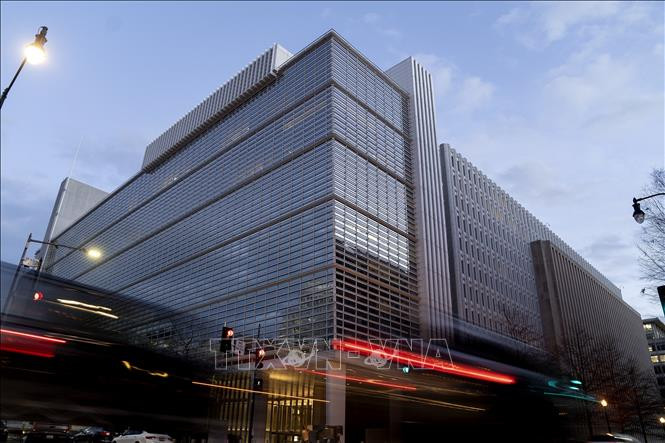This is the largest capital increase for the World Bank since the US and other shareholders expanded the bank's mission beyond fighting poverty in 2022.

Eleven countries have pledged more than $11 billion in new blended capital instruments and portfolio guarantees designed to expand the bank's lending capacity by $70 billion over a decade to address climate change, pandemics and other global challenges, the World Bank said on April 19.
The voluntary contributions were announced at the World Bank and International Monetary Fund (IMF) Spring Meetings in Washington, DC, and are the largest capital increase for the World Bank since the United States and other shareholders expanded the bank’s mandate beyond fighting poverty in 2022.
The bulk of the latest funding commitment, about $9 billion, is for the U.S.’s new Portfolio Guarantee Platform, which will support private loans and equity investments in eligible projects. The contribution will be partly in cash and partly in the form of a U.S. guarantee for the World Bank’s platform, through a $750 million appropriation from Congress.
Japan said it was contributing $1 billion to the guarantee program, France said it would contribute $500 million, while Belgium did not disclose a specific amount. Britain, Denmark, Germany, Italy, Latvia, the Netherlands and Norway pledged to contribute to the blended capital mechanism — a tool that combines debt and equity to leverage loans. Of this, Britain contributed £100 million ($123.7 million).
The World Bank’s chief financial officer, Anshula Kant, said the bank would only finance projects that have cross-border benefits, such as those that reduce greenhouse gas emissions or help prevent pandemics. The tools encourage donors to contribute voluntarily to these causes and projects, Kant said, and they also encourage borrowing countries to invest in these types of projects, with benefits that are not limited to their own countries.
German Development Minister Svenja Schulze has highlighted the importance of further expanding the bank's lending capacity as the needs of poor countries continue to grow. According to her, the World Bank's reform process will not stop here.
Meanwhile, World Bank President Ajay Banga affirmed that the bank has been working to develop new financial instruments to increase lending capacity, as well as funding budgets to improve people's lives. The latest commitments are a support for progress in banking reform and demonstrate a shared commitment to promoting development globally.
The World Bank previously estimated that developing countries would need an average of $2.4 trillion a year through 2030 to address global challenges including climate change, conflict and pandemics. In April 2023, World Bank shareholders approved a leverage increase to boost lending capacity by about $40 billion over 10 years and expand bilateral guarantees to raise an additional $10 billion in financing.